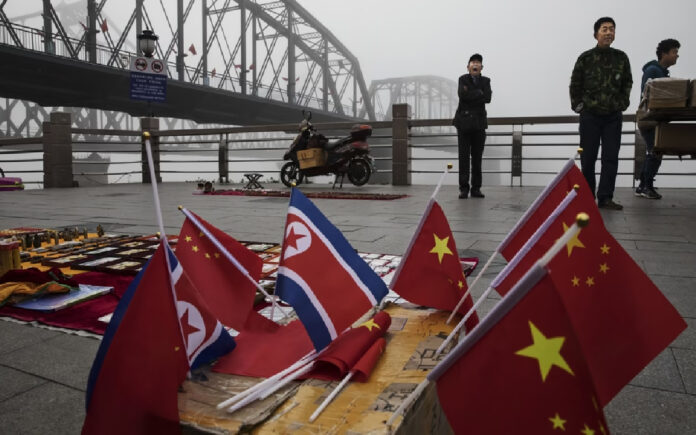Seoul: North Korea’s recent rebuke directed at China has brought to light the divergent perspectives between the two nations concerning North Korea’s nuclear arsenal, despite their warming relations in other areas, observed analysts and officials in South Korea.
In a surprising move, North Korea criticized China, along with Japan and South Korea, for discussing the denuclearization of the Korean peninsula, labeling their joint declaration after a summit in Seoul as a “grave political provocation” that infringes upon its sovereignty.
Although China advocated for the mention of the peninsula instead of specifically targeting North Korea in the statement, the gesture wasn’t sufficient to appease its neighbor, noted Patricia Kim from the Brookings Institution in the United States. “It is notable that North Korea criticized a joint statement that China had signed onto, even after Beijing helped water down the statement.”
The joint statement by the three nations reaffirmed their commitment to regional peace and stability, as well as the denuclearization of the Korean peninsula. However, unlike previous statements, there was no explicit commitment to pursue denuclearization, reflecting North Korea’s steadfast refusal to relinquish its nuclear weapons, particularly after talks with the United States and other countries stalled in 2019.
“This is about North Korea emphasizing its stance that any diplomatic rhetoric suggesting Pyongyang should eventually denuclearize is unacceptable,” remarked Tong Zhao, a nuclear expert at the Carnegie Endowment for International Peace.
While China refrained from addressing denuclearization directly in response to the North’s criticism, a South Korean foreign ministry official highlighted significant differences among the three countries at the summit, indicating that it would be challenging to reach agreements similar to previous ones.
Despite the softer language in the declaration, the talks indicated that China’s core position on denuclearization remained unchanged, deemed “meaningful” by South Korean officials.
Also Read | South Korea Condemns North’s ‘Provocative’ Act of Sending Balloons Laden with Trash
China’s strategic relationship with North Korea, its sole military ally, and primary trading partner, has shown signs of strain, particularly with North Korea’s recent failed satellite launch shortly after the Seoul summit, interpreted by some as a message to China.
Rachel Minyoung Lee, a researcher, noted that while official exchanges between China and North Korea continue, there are underlying suspicions that limit the depth of their alignment.
Also Read | Two Faces of Kashmir: Is POK Ready to Re-merge with India Once and for All?
As North Korea strengthens ties with Russia, it may feel emboldened to be less deferential to China, according to analysts. However, Zhao cautioned that China remains cautious about North Korea’s military cooperation with Russia, which could challenge Beijing’s influence over Pyongyang.
While the recent criticism from North Korea does not necessarily indicate a deterioration in its relationship with China, it highlights the complexities and nuances of their bilateral ties amidst shifting geopolitical dynamics.



